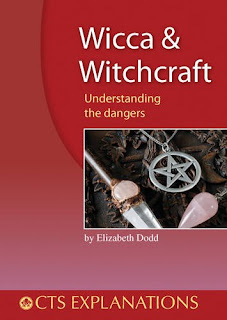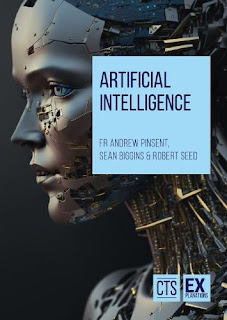Catholicism and Mental Health
Dr. Pravin Thevathasan
Catholic Truth SocietyISBN 9781860829185
eISBN 9781784693152
ASIN B072XSRZN7
CTS Booklet EX52
Over the last several years I have fallen in love with the works books and booklets from the Catholic Truth Society. I have read over 430 volume, and still have almost 200 on my ‘wish list’ or ‘to be read’ list. Many I want to read are out of print, so it is an exercise in tracking down out of print editions. And nearly every time I finish a volume I find another I am interested in, at the end of this one it highlighted a few others in this series including another by Dr Pravin that I now need to track down. I believe Dr Thevathasan only published 2 books and both are in this series. This one published in 2014 and the eBook released in 2017. Unfortunately the other does not have an eBook edition.
Back to the volume at hand. This volume is an excellent read, in a wonderful series! The description of this book is:
“In some pastoral contexts the boundaries between Catholicism and psychiatry in mental health care can be contentious. This work shows that there should be no conflict between them. Through a brief history of psychiatry in secular and faith settings the author moves to examining the conflicts and agreements that have arisen between Catholicism and psychiatry, with reference to Freud and Jung in particular. Case studies of some psychiatric disorders, depression being the most common, carry considerable insight to support the central thesis.”
And the chapters and sections in this little volume are:
And the chapters and sections in this little volume are:
Catholicism and Psychiatry
A Brief History of Psychiatry
When Psychiatry and Catholicism Conflict
Christianity According to Sigmund Freud
Carl Jung’s Journey from God
The Nature of Apparitions
On Sanctity
When Psychiatry and Catholicism Agree
An Introduction to Some Psychiatric Disorders
Conclusion
Endnotes
I highlighted a dozen passages while working through this volume, some of them are:
““If mental health enjoys such esteem in Catholic thought and practice, it is only right that the Church looks with satisfaction at the new path being opened by psychiatry… all that Sacred Scriptures say in praise of human wisdom are an implicit affirmation of the importance of mental health.” Pope Pius XII”
“We will begin with a brief history of psychiatry, then examine the conflicts and agreements that have arisen between Catholicism and psychiatry, and end with an examination of some psychiatric disorders.”
“It was thought that Saul’s madness was the result of sin and that both sin and insanity lead away from God, so the sick in mind needed a priest more than a doctor.”
“There is here a separation between personal sin and sickness. The consequence of unrepented sin is “something worse” than sickness.”
“The early Christians established hospitals for medical and nursing assistance, and there was a form of Christian psychotherapy that was meant to be both therapeutic and consoling. Norman Auton, a hospital chaplain, suggested that the advances in the treatment of mental illness by the early Church were due to the great importance attached to individual and daily care.”
“Hospitals for the mentally ill were established by Pope Innocent III and by the Order of St John of Jerusalem among others. In England, the priory of St Mary of Bethlehem was founded in 1247 by Simon Fitzmary.”
“To sum up, from the beginning the Christian response to mental suffering has been far more compassionate and caring than is widely assumed. The mediaeval treatment of the mentally ill was far from perfect, but there were humane responses throughout the period.”
“It is worth noting that the number of apparitions accepted by the Church is small in comparison to the claims made, even though the majority of claimants are not mentally ill. The teaching of St John of the Cross is salutary and may be summed up as follows: “One should take no notice of visions and revelations, but live one’s spiritual life in faith, hope and charity. If the alleged visions are divine, Almighty God will see to it if he wishes that this become abundantly clear.””
“We may confidently say that, for some cases, religion and psychiatry are not in conflict: the treatment of mental illness is helpful to, but no substitute for, the cure of the soul.”
“It is recognised that there is a change in the brain chemistry when a person suffers depression. Anti-depressants may therefore be a good option when prescribed appropriately. It is also recognised that the way we think can also change the brain chemistry. Therefore treatments such as cognitive therapy, which changes the way we think, can also help in the treatment of depression.”
“A psychiatrist is a ‘doctor of the soul’, but in modern psychiatry the original meaning has been abandoned and psychiatrists tend to focus on the body, and especially the brain, to the exclusion of the soul. There is a real need now for Catholic spirituality to accompany the medical approach to the care of the mentally ill.”
This was both a good book and a hard volume to read. It could have just as easily been a part of the CTS Concise Histories series. As opposed to being part of the CTS Explanations series. This is one I have had for a while but had not got around to reading. Maybe because in part I knew it would not be an easy read. I have a friend who has attempted suicide a few times over the 30 years I have known him and another who succeeded when I was much younger. I also have a brother who overdosed at the beginning of the pandemic lockdown’s. And I have had to deal with my own struggles with addictions and a long line of alcoholics on both sides of my family. So I did anticipate this small volume evoking a lot of emotions and feelings.
I really debated how to rate this volume, I gave it a 5/5 on kindle when I finished it. When I went to research for the review I switched it to a 4, then shortly after switched it back to 5. A five does not always mean it is a favourite book, sometimes it signifies it as an important read. And even though this is a decade old now I believe it is still a valuable and important volume.
Dr. Pravin Thevathasan does a great job of given an overview and history of secular approaches, going back to ancient Rome. He also gives several examples from his own practice and cases he has worked on. He also provides numerous statistics and numbers, which I am sure, are much worse now a decade later, and after the pandemic and social isolation that caused for many.
I hope those quotes above give you a feel for this volume. There is a lot of excellent material in this little volume. The first part of the book is an examination of the history, and then we are given some overviews of common illnesses, and finally some case studies.
This is an excellent little volume, even if not an easy read. It seems every time I read a book from the Catholic Truth Society I find 2 or three others I want to read. I have an ever growing wish list of eBooks, books in print, and books out of print I want to track down. I am very thankful I made the effort and worked through this volume. This is a good read, in a great series, and one I can easily recommend.
Note: This book is part of a series of reviews: 2025 Catholic Reading Plan! For other reviews of books from the Catholic Truth Society click here.
For reviews of other books in the CTS Explanations series click here.
Books in the CTS Explanations Series:
Marriage Annulment in the Catholic Church
Jehovah’s Witnesses
Does the Church oppress Women?
Organ Transplant – and the definition of Death
Abortion
Jehovah’s Witnesses
Does the Church oppress Women?
Organ Transplant – and the definition of Death
Abortion
Be Yourself An Explanation of Humility - William Lawson SJ
Gene Therapy – and Human Genetic Engineering
Prenatal tests
Gift of life and Love
Islam
Euthanasia
Infertility
Homosexuality
Cloning and Stem Cell Research
Contraception and Chastity
Freemasonry and the Christian Faith
Intelligent Life in the Universe
Spirits, Mediums & The Afterlife
Gene Therapy – and Human Genetic Engineering
Prenatal tests
Gift of life and Love
Islam
Euthanasia
Infertility
Homosexuality
Cloning and Stem Cell Research
Contraception and Chastity
Freemasonry and the Christian Faith
Intelligent Life in the Universe
Spirits, Mediums & The Afterlife

















No comments:
Post a Comment